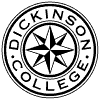
 Graduation
and Class Requirements
Graduation
and Class Requirements
Requirements for Graduation
1) At least 128 semester hours of work and physical education
2) Required Courses
a) English 1-2, English 3-4, or English 5-6; History 21-22; Mathematics
1 in addition to
either 4, 6, or 8
b) Two languages consisting of two years work in one language and three
years work in
another language
~> Any language begun in the college must be continued for at least two
years
c) Eight semester hours of biology, chemistry, or physics
3) Major of 18 semester hours
4) Minor of 12 semester hours
5) Average grade of 70% or higher for the entire course
Courses were
categorized by numbers, which varied from 1 to 92, and the number of hours
that each course met for each week. These were called "semester hours"
and each year required that a student must have a certain number of semester
hours. Freshman were required to have 32 or 34 hours, sophomores
must have 32 hours, while juniors and seniors could not take more than
34 hours. The number of the course indicated its level. Courses
1-9 were considered elementary courses and were intended mainly for freshman.
Courses 10-19 were mainly sophomore courses, and any course above 20 was
considered an advanced courses, intended to contribute to a major or minor.
If a junior or senior wished to take a course under 20, it had to be done
so with the consent of the faculty and the hours of credit for the course
could be reduced.
The freshman
and sophomore years at the college served to provide a basic academic foundation
(Junior college period), while the last two years provided specialization
in a specific field of study. Students could pursue one of three
degrees, which were a Bachelor of Arts, Bachelor of Philosophy, or Bachelor
of Science. To obtain a Bachelor of Arts either Greek or Latin had
to be taken during freshman year. For a Bachelor of Science, students
had to take either biology or chemistry during their freshman year.
Overall, a student pursuing a Bachelor of Science had to take five science
courses which included Biology C, General Zoology, Chemistry C, Chemistry
F, Chemistry I, Physics C, or Physics F. Students also had very delineated
curriculums that were mandatory for all freshman and sophomores.
Freshman Year
1) 6 hours of Rhetoric and Composition (English 1-2, A)
2) 4 hours of English Literature
with Cultural Background (English 3-4, B)
OR
4 hours
of The Appreciation of Literature (English 5-6)
3) 4 hours of History 21-22
4) 6 hours of Mathematics
1 and 4, or 6 or 8
Electives
6 hours of French,
German, Spanish, Greek or Latin
One of the
following:
a) 6 hours of Bible and Philosophy
b) 8 hours of Biology or Chemistry
c) 6 hours of a second language
This adds up to a total of 32 or
34 semester hours a year, or 16 or 17 hours a semester. In other
words, a student could have up to 17 hours of class each week.
Sophomore Year
1) 6 hours of language, if not done freshman year
2) 8 hours of Biology, Chemistry, or Physics, if not completed freshman year
3) 6 hours of two of the following:
Bible, Philosophy, or Social Science, if not completed freshman year
Electives
Courses numbered
below 30 in any department. Any courses above thirty may be taken
with consent of the head of the department.
Junior and Senior Years
-Fulfill major and minor requirements
- A major required 18 semester hours and a minor required 12 semester hours
- Students may also take up to 8 additional hours in each department of their major or minor
-After major
and minor requirements are met, students also have to take at least 6 hours
of
courses in each of three out of the four groups of study.
 |
|
Dickinson 1934 is a project of Prof. Osborne's History 204 Class, Fall Semester 2000. |